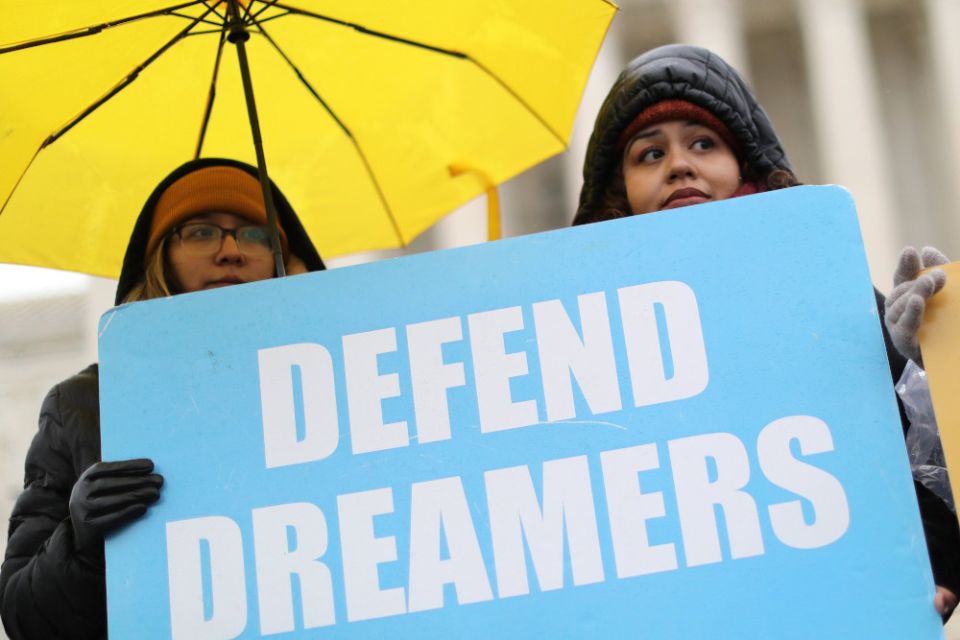~ by Rhina Guidos, Catholic News Service
WASHINGTON – Standing outside the U.S. Capitol pleading with lawmakers to grant her and her peers a path toward citizenship is not how Zuleyma Barajas pictured her life 10 years after she was granted a temporary solution to remain in the U.S. Barajas believed her future included permanent residency, then citizenship, after President Barack Obama announced, through an executive order on June 15, 2012, he was extending protections for young adults who, like her, were brought into the country illegally as minor – via the Deferred Action for Childhood Arrivals.
The program, commonly known as DACA, gave her a reprieve from deportation, documents to work and drive, and hope that Congress would soon work together to find a permanent fix. Obama announced it as a temporary “stopgap” measure.
“I expected we’d be fighting another fight,” Barajas told Catholic News Service on June 15 outside the U.S. Capitol, saying she was “definitely frustrated” that absolutely nothing has happened in 10 years.
She said she wanted to ask lawmakers: “What is it that you need to hear? We’ve taken the necessary steps.”
A politically divided Congress, however, has not been able to agree on a comprehensive immigration plan, nor a bill to offer the approximately 760,000 DACA recipients a path to citizenship.
Auxiliary Bishop Mario Dorsonville of Washington, who is Chairman of the U.S. Conference of Catholic Bishops’ Conference on Migration, said on the anniversary of DACA that in the years that have passed “its beneficiaries have come to be known for their abundant contributions to our society.”
“But after a decade of temporary relief, most DACA recipients still face uncertainty about their future in this country, to say nothing of their families, including hundreds of thousands of U.S.-citizen children, employers and the communities that depend on them,” he said in a statement. “For those confronted by this reality, the church remains committed to walking with you and seeing this injustice remedied, furthering God’s plan,” he said.
While DACA “was never a cure for the underlying challenges” recipients faced, Dorsonville said, “it was a welcome step toward recognizing their inherent dignity and unrealized potential.”
“Only Congress can ensure the full integration of this population. We therefore urge legislators to make this moment the long-awaited inflection point that leads to a permanent solution…one of the many steps to address an immigration system in desperate need of reform,” Dosonville said.
Fran Eskin Royer, Executive Director of the National Advocacy Center of the Sisters of the Good Shepherd, speaking in favor of DACA recipients said it was time to “end their nightmares; give them back their dreams. Children embody our hopes, our dreams. What does it say if we rip away the dreams of our children?”
Most Americans want them to stay in the U.S., she said. To read the entire article, please click here
